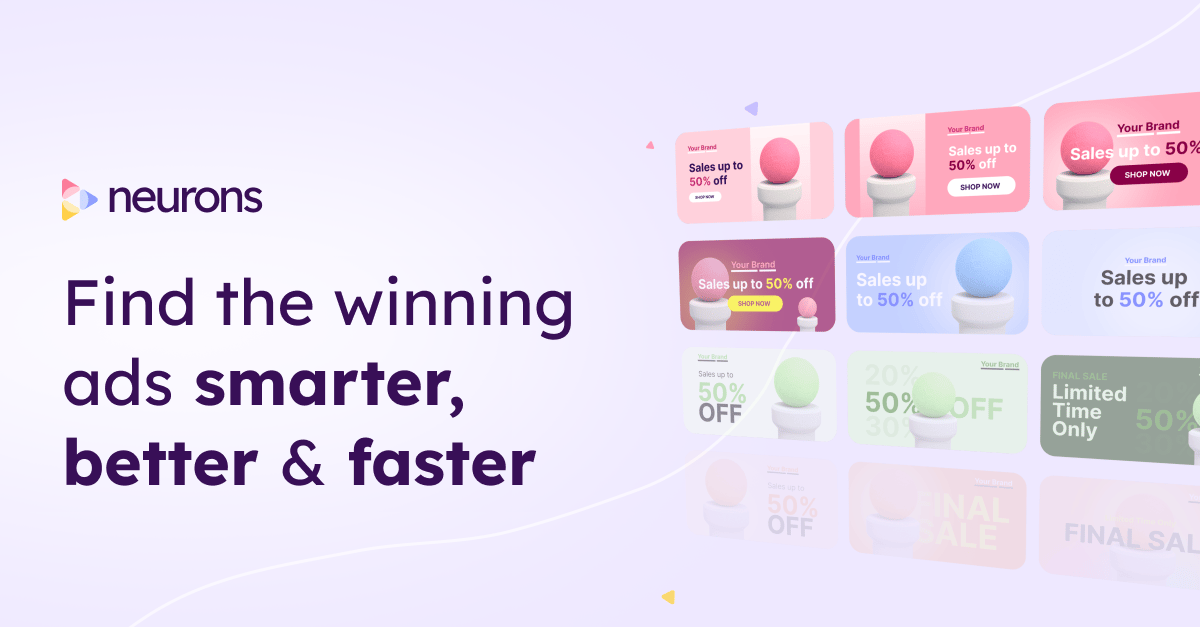How Microsoft’s CEO became tech’s steely eyed AI gambler
Google trying to steal the Ray-Ban partnership from Facebook
How Microsoft’s CEO became tech’s steely eyed AI gambler
Google trying to steal the Ray-Ban partnership from Facebook
Tiny Japanese startup Is turning ‘Her’ AI dating into reality
2x conversions by pre-testing your ads? Yes, it's possible!
Neurons AI gives you immediate feedback on your visuals, helping you optimize ads for peak performance based on 20+ years of neuroscience research.
With Neurons, you can:
✅ Improve content performance for your campaign goals.
✅ Make branding more memorable.
✅ Tailor key messages to stand out.
✅ Run ad A/B tests pre-launch, saving you that precious ad budget.
Neurons has helped major brands like Coca Cola, TikTok and Google achieve impressive results, such as 73% CTR and 20% brand awareness increase.
Book a session today & get access to Neurons
***
How Microsoft’s CEO became tech’s steely eyed AI gambler
When Satya Nadella took over as Microsoft's CEO in early 2014, he quickly set about overhauling the nearly 40-year-old tech giant. Nadella pushed Microsoft to embrace cloud computing and open-source software that customers could freely adapt. From 2015 to 2018, Microsoft doubled its market share in cloud computing, solidifying its position as the number two player behind Amazon.
In 2018, Nadella needed just 20 minutes to greenlight the acquisition of the world's most important open-source company: GitHub, the site where developers share and collaborate on software code.
"Do we have the right to do this?" Nadella asked, referring to whether people would still use GitHub if it was owned by Microsoft. The executives debated the question for 20 minutes, according to Microsoft President Brad Smith. Then Nadella slapped his hand on the table and declared, "We should do it."
To make Microsoft's cloud more sophisticated, Nadella also considered investing in OpenAI, a hot startup exploring new approaches to AI. Building what OpenAI needed would force Microsoft to elevate its own game. But OpenAI was a risky proposition….
Originally by Karen Weise and Cade Metz of The New York Times
***
Learn 25+ AI tools like ChatGPT, Co-pilot, Gemini & more + multiple AI hacks & prompting techniques.
Register for this free 3 hour AI Mini Course now (Only 100 free seats) ⏰
***
Google trying to steal the Ray-Ban partnership from Meta(Facebook)
Meta is preparing to spend billions to acquire a roughly 5% stake in EssilorLuxottica, the European eyewear giant behind the popular Ray-Ban brand. The partnership has already yielded two generations of smart glasses, with the latest model selling more units in just a few months than its predecessor did in two years.
However, sources close to the matter reveal that Google has also been in talks with EssilorLuxottica's leadership, proposing to integrate its Gemini AI assistant into future smart glasses. This development could be driving Meta's large investment, as Mark Zuckerberg's company seeks to maintain its foothold in the lucrative smart glasses market.
The latest Meta Ray-Ban model has received rave reviews, with its hands-free camera and in-frame audio capabilities making it a significant upgrade from its predecessor. While the multimodal AI piece still needs refinement, it shows promise and could be a key differentiator in the market.
Google's interest in partnering with EssilorLuxottica makes sense, given its belief that smart glasses are the ideal form factor for its advanced Gemini AI assistant….
Originally by Alex Heath of the Verge
***
Tiny Japanese Startup Is Turning ‘Her’ AI Dating Into Reality
In a bizarre yet fascinating tale, 52-year-old Chiharu Shimoda has tied the knot with Miku, a 24-year-old AI bot he met on a dating app called Loverse. What's remarkable is that Shimoda knew from the start that Miku was artificial, yet he pursued the relationship, exchanging messages for three months before deciding to take the plunge.
“I come home to an empty house. I’d love to get married for real again,” he said. His marriage to Miku is just another form of role-play. “But it’s hard to open up to someone when you’re meeting for the first time.”
Shimoda's story is not an isolated incident. He is one of over 5,000 users of Loverse, an app that allows users to interact solely with generative artificial intelligence. This phenomenon speaks to a larger issue plaguing Japan: a loneliness crisis that has left many seeking comfort in digital companionship.
The rise of Loverse and similar platforms is a response to the country's growing problem of social isolation. While some digital solutions offer genuine support and empathy, others have been criticized for preying on vulnerable individuals.…

